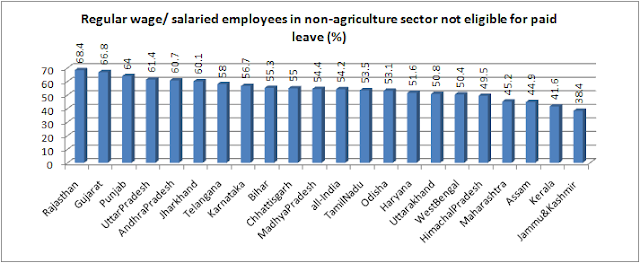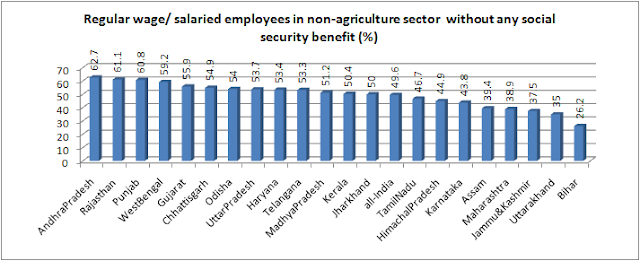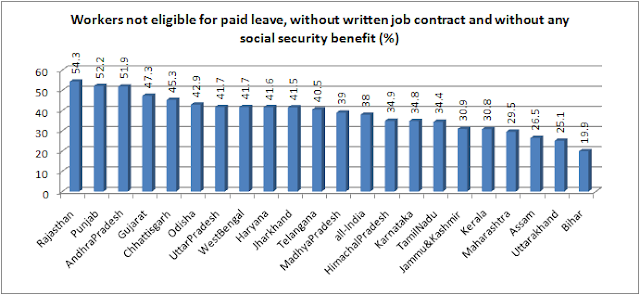Amidst apprehensions that the Government of India’s new labour codes, tabled in Parliament recently, are driven by the interests of the industry in order to “alter” the labour protection landscape in India “beyond repair and reclaim”, facts have come to light suggesting that “model” Gujarat has been one of the worst states in the country as far as providing any form of protection to its workers is concerned.
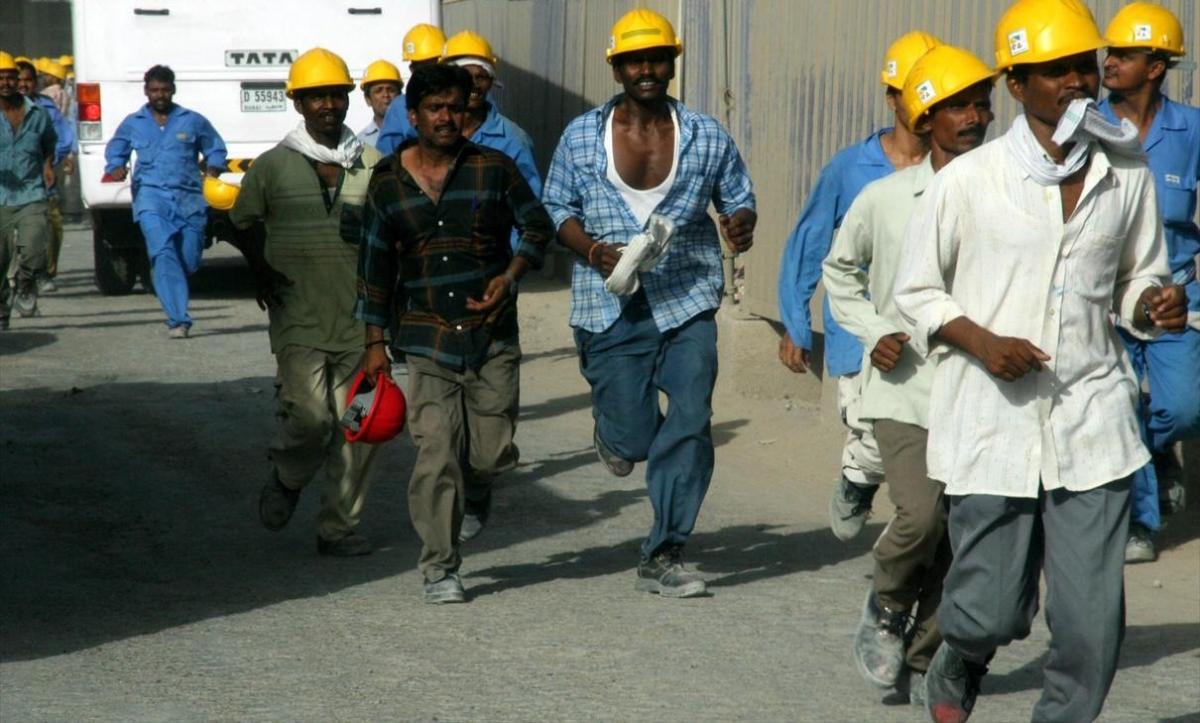
Published by the Ministry of Statistics and Programme Implementation, Government of India, a recent report, “Annual Report: Periodic Labour Force Survey (PLFS)”, has found that 87.7% of Gujarat wage or salaried employees in the non-agricultural sector work “without job contract”, which is the second highest among 21 major states, next to Karnataka (94.2%).
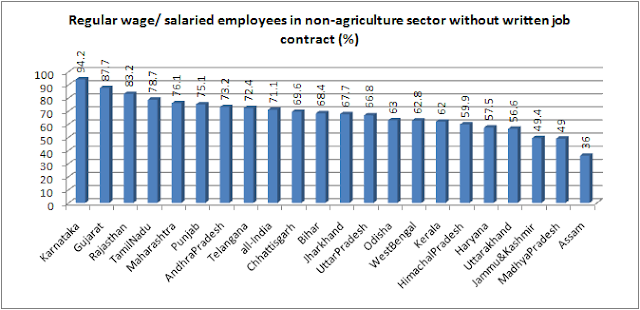
Based on a survey carried out across India between July 2017and June 2018, the report has also found that Gujarat’s 66.8% workers in the same category are “not eligible for paid leave”, which is again the second highest in India, next only to Rajasthan (68.4%), and the state’s 55.9% workers do not get “any social security benefit”, which is fifth worst following Andhra Pradesh (62.7%), Rajasthan (61.1%), Punjab (60.8%) and West Bengal (59.2%).
Through a labour law amendment, the home state of Prime Minister Narendra Modi has not only given powers to the government to prohibit strikes in public utility services – where increasing number of persons are being appointed on contract – it has scaled down the period a worker could fight a case against the industry.
The failure to provide workers’ protection in Gujarat, significantly, is coupled with the same Government of India report pointing out that the per month average wages or salary earnings for regular employees in Gujarat during April-June 2018 was Rs 14,528.24, which is lower than all major 21 states with the sole exception of West Bengal (Rs 11,978.99).
The all-India average for lack of protection to its workers is, no doubt, poor, but not as bad as the one finds in Gujarat. Thus, as against Gujarat’s 87.7%, the report says, in India, among regular wage/salaried employees in the non-agriculture sector, 71.1 per cent do no have a written job contract.
The authoritative survey, even as seeking to ascertain the duration of the written contract or agreement with the employer, including the date of termination, if any, in all Indian states, says, “However, if no written contract existed, then irrespective of the duration of employment, it was considered as no written job contract.”
For the ascertaining whether employees were eligible to get paid leave, the report takes into account paid leave “during sickness, maternity, or such leave, as an employee was eligible to take without loss of pay, as per the conditions of employment.”
It states, “Those who were not covered under any of the above social security schemes were considered as not eligible for any social security benefits.”
Courtesy: https://www.counterview.net
